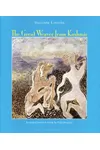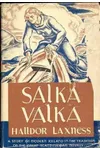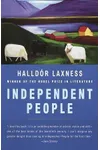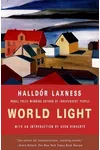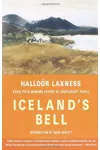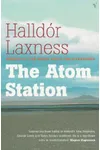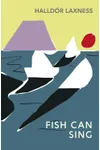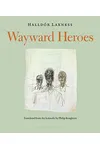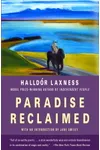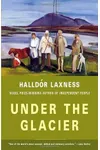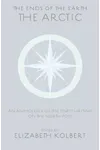Picture an Icelandic storyteller who spun tales of rugged landscapes and stubborn hearts—meet Halldór Laxness! This Nobel laureate crafted over 60 works, blending sharp wit, irony, and a deep love for Iceland’s soul. From the epic struggles of Independent People to the tender notes of The Fish Can Sing, Laxness’s stories capture the human condition with a twinkle in their eye.
Born in a land of fire and ice, Laxness didn’t just write about Iceland—he brought its spirit to life. His unique voice, steeped in folklore and modernity, made him a literary giant whose works still resonate across the globe.
The Making of Halldór Laxness
Halldór Laxness was born on April 23, 1902, in Reykjavik, Iceland, as Halldór Guðjónsson. Raised on a farm in Mosfellssveit, he soaked up the oral traditions and stark beauty of rural Iceland. By his teens, he was already scribbling stories, publishing his first novel, Child of Nature, at 17. His early travels across Europe and America exposed him to socialism, surrealism, and Catholicism, all of which shaped his eclectic worldview and rebellious streak.
Laxness’s early works, like The Great Weaver from Kashmir, showed a young writer wrestling with big ideas—faith, identity, and freedom. These formative years set the stage for his later masterpieces, where he honed a style that was both lyrical and fiercely honest.
Halldór Laxness’s Unforgettable Stories
Laxness’s bibliography is a treasure trove, with Independent People (1934–35) as its crown jewel. This saga follows Bjartur, a stubbornly independent farmer whose quest for freedom traps him in a cycle of hardship. Its biting irony and vivid portrayal of Icelandic life earned it global acclaim and helped secure Laxness’s 1955 Nobel Prize in Literature.
The Fish Can Sing (1957) offers a gentler touch, weaving a coming-of-age tale about a boy named Álfgrímur in a rapidly modernizing Iceland. Its nostalgic charm and subtle humor showcase Laxness’s knack for blending personal stories with cultural shifts. Other gems like World Light (1937–40) and Iceland’s Bell (1943–46) explore dreamers, outcasts, and the clash between tradition and progress, all wrapped in his signature poetic prose.
His style—rich with irony, folklore, and social critique—feels like a fireside chat with a wise, mischievous elder. Laxness didn’t just tell stories; he invited readers to question what freedom, identity, and home really mean.
Why Halldór Laxness Matters
Laxness’s impact goes beyond Iceland’s shores. His works gave a small nation a loud voice in global literature, proving that stories from remote places could resonate universally. He tackled timeless themes—freedom, resilience, change—with a clarity that still feels fresh today. His Nobel win wasn’t just a personal triumph; it spotlighted Icelandic culture and inspired generations of writers to embrace their roots.
Today, Laxness’s novels are studied, adapted, and cherished for their humor, heart, and unflinching honesty. He remains a beacon for anyone who believes storytelling can change how we see the world.
About Halldór Laxness
- Born: April 23, 1902, Reykjavik, Iceland
- Key Works: Independent People, The Fish Can Sing, World Light, Iceland’s Bell
- Awards: Nobel Prize in Literature (1955)
- Died: February 8, 1998
Snag Independent People or The Fish Can Sing and dive into Halldór Laxness’s world of wit, wisdom, and Icelandic magic!
